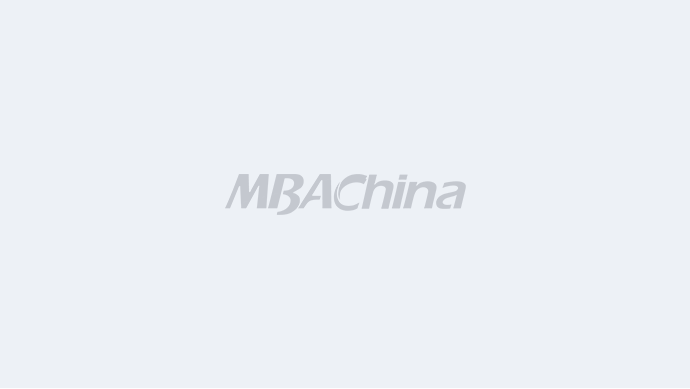A new Paris design

THE degree to which commercial organisations should dictate the syllabuses of MBA programmes is a thorny issue. Business schools are clearly preparing students for a commercial life; and many students want the skills that will make them as enticing as possible to the big employers. Business professors, on the other hand, bristle if they are told they are teaching mere vocational qualifications; they like a bit of academia thrown in too.
The new curriculum at HEC Paris, which launches in September, is an interesting case in point. The school called in Bain & Co, a large consultancy, to help revamp its MBA programme. Businesses, even consultancies, like the idea of hiring students who have some real-world know-how. So it has suggested the school focuses more on students’ practical experience. It will thus beef up its involvement in MBA tournaments and off-campus activities.
At the same time, HEC is stressing that the programme will remain academically rigorous. “Firms are interested in having people who can develop new business applications,” says Bernard Garrette, the school’s associate dean of MBA programmes. But, he goes on, “we also need to make sure that we teach the core business skills properly”.
But are students’ and firms’ interests always so closely aligned? Mr Garrette admits that there is a debate to be had over “whether it is the students or companies who are our clients”. MBAs are becoming more interested getting jobs outside the habitual areas of finance and consulting. Many are looking to start their own companies, join smaller firms or even work for charities or NGOs. Having Bain—as traditional a recruiter of MBAs as one could find—leading the curriculum review could lead to accusations of self-service.
Mr Garrette says the school was careful to think more broadly. “We met [both] with companies who hire from the programme and that do not” he says. This led it to implement a new core course on ethics, and also to focus more heavily on entrepreneurship.
It is an interesting time to be a French business school. Below HEC and INSEAD, the country’s two behemoth instiutions, the market has been consolidating, with smaller schools having to merge in order to compete. They have also had to contend with an attempt to limit the number of visas that are issues—a sop to rightwingers in the run up to this year's presidential election. Fortunately, says Mr Garrotte, this has not had the feared affect of keeping too many non-EU students out of HEC.
Perhaps even more important, for a school wishing to lure students from across the world, is the overall business environment in France. Big business is still relatively healthy in the country. There are more Fortune 500 firms headquartered in Paris than in London, and more in France overall than in Germany. However, with its heavy bureaucracy and exacting employment laws, it is not considered an easy place to be an entrepreneur. It still, for example, lags behind many of its competitors when it comes to tech start-ups. And times might be about to get a bit tougher, with the expected election of François Hollande as president—a man seen by many, including The Economist, as bad for business. On this point, Mr Garrette refuses to be drawn. Mr Hollande is after all, he politely explains, an HEC alumnus.
Forum: HEC Paris
(本文转载自 ,如有侵权请电话联系13810995524)
* 文章为作者独立观点,不代表MBAChina立场。采编部邮箱:news@mbachina.com,欢迎交流与合作。
备考交流
最新动态
- 成果 | 高校科技伦理教育专项工作首批成果:《工程伦理》新形态教材 2024-04-24
- 2025考研全程规划时间表! 2024-04-24
- 避雷!今年这些院校复试刷人太狠了! 2024-04-24
活动日历
- 01月
- 02月
- 03月
- 04月
- 05月
- 06月
- 07月
- 08月
- 09月
- 10月
- 11月
- 12月
- 04/02 暨南大学MBA名师公开课丨解析AI数字人跳舞视频——制作实操及变现路径
- 04/06 活动报名|投资风险与回报的掌控,港科大MBA大师课助你了解交易的智慧
- 04/06 这所双一流有调剂!云南大学EMBA/MTA调剂政策官方解读来了!
- 04/06 报名 | How your Firm will Shape the Future?“小火车”教授公开课暨复旦大学-BI(挪威)国际合作MBA项目说明会
- 04/08 今晚7点!哈尔滨工业大学商学院调剂说明会直播预约开启
- 04/10 4月10日招生开放日 | 第一批面试前最后一场,交大建筑本科学姐与你分享职业转型经历
- 04/11 【活动报名】4月11日@清华大学|2024科创产业投资峰会:硬科技、智能造、创未来
- 04/11 活动报名 | 中欧思创会洛阳站,聚焦智能制造
- 04/12 活动报名 | 香港中文大学(深圳)金融EMBA校园开放日暨24级课程说明会
- 04/12 长江MBA公开课:AI驱动下的企业变革|活动报名














